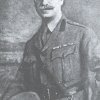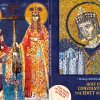До сада је на међународним математичким олимпијадама 11 математичара освојило Fields-ову медаљу и још око 20 математичара освојило је најпрестижнија научна признања из математике и рачунарства. Теодор фон Бург, „дечко вредан пажње“, једини је освојио шест медаља, од којих четири златне.
Фон Бург од седмог разреда основне школе, као ученик огледног одељења, похађа Математичку гимназију. После завршене основне, наставља школовање у Математичкој гимназији, где је ове године и матурирао, а на студије одлази у Оксфорд. Још као основац такмичио се са средњошколцима и освајао медаље: 2007. у Вијетнаму је освојио бронзану медаљу, 2008. у Шпанији сребрну, а 2009. у Немачкој, 2010. у Казахстану, 2011. у Холандији и ове године у Аргентини осваја златне олимпијске медаље.
.




